Returning from the wham bam glam of dramatic metropolitan backdrops, Steven Soderbergh shows us that even this trio of redneck siblings can pull off a robbery fit for a halfwit in this NASCAR-fueled heist – even if they do only share five hands between the three of them.
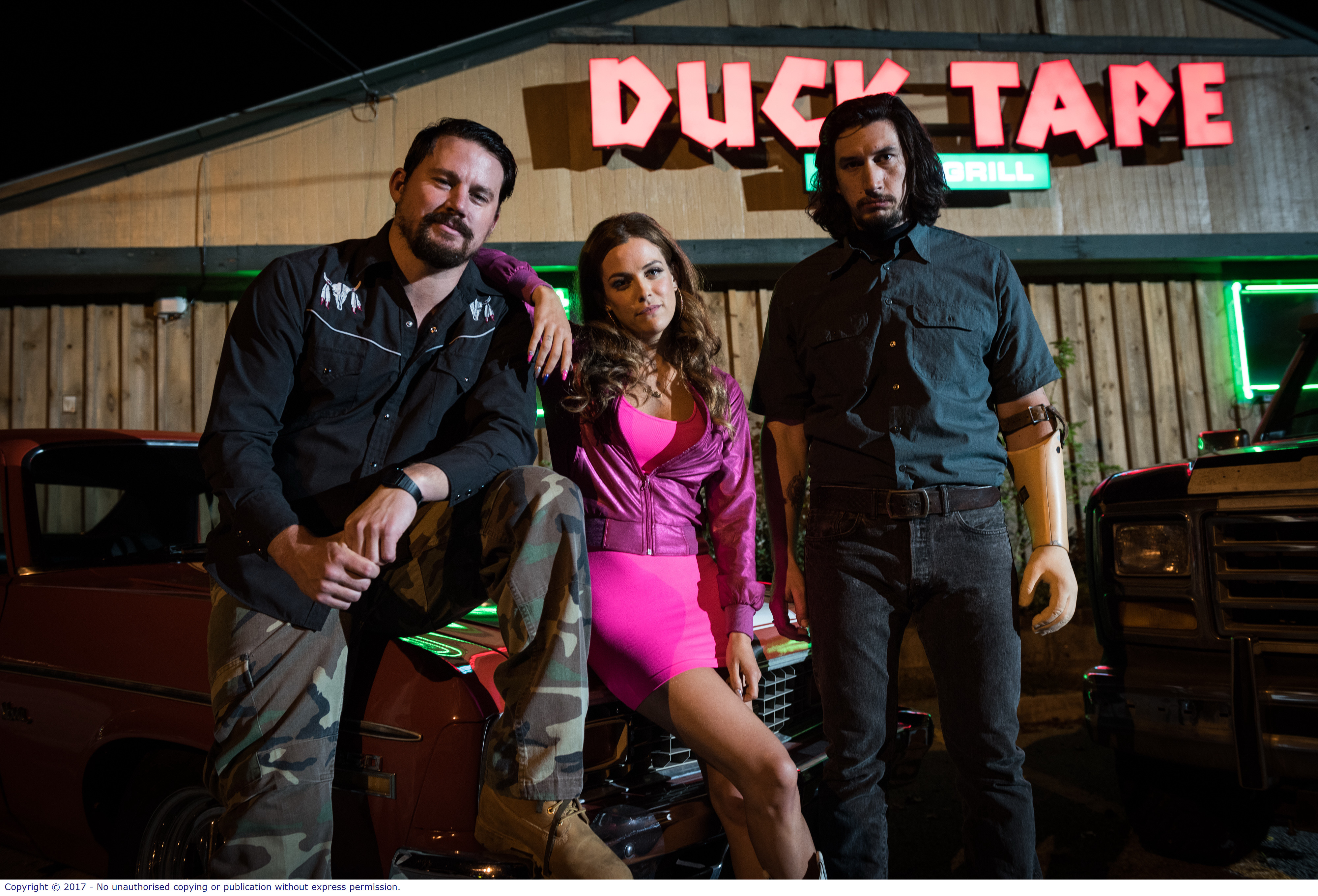
After a four year self-imposed hiatus, Steven Soderbergh makes his return to feature filmmaking – having renounced his own retirement. He’s chosen a safe path of re-entry from low-earth orbit with this low-key indie flick. Written by a mysterious Rebecca Blunt, who may be a fictitious person or a pseudonym with official writing credits to the name, the film boasts an ensemble cast that includes Adam Driver (Star Wars: The Force Awakens), Channing Tatum (Magic Mike), Riley Keough (Mad Max: Fury Road), Daniel Craig (Cowboys & Aliens), Seth MacFarlane (A Million Ways to Die in the West), Katie Holmes (Touched with Fire), Hilary Swank (Million Dollar Baby), Katherine Waterston (Alien: Covenant) and Sebastian Stan (Captain America).
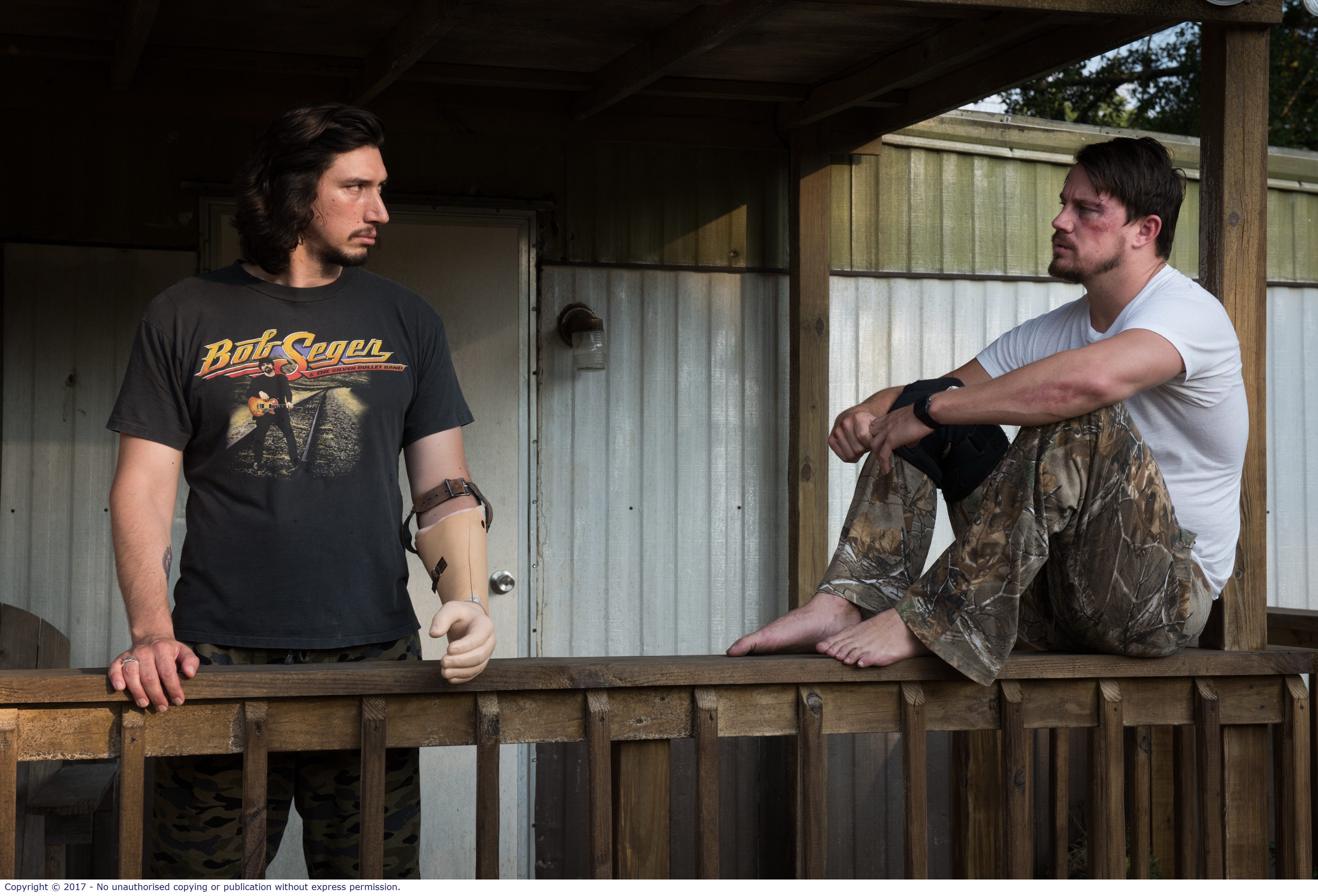
Born-loser siblings Jimmy Logan (Channing Tatum), Mellie Logan (Riley Keough), and Clyde Logan (Adam Driver) try to reverse a family curse in their small hometown in West Virginia by setting out to execute an elaborate heist during the NASCAR Coca-Cola 600 race at the Charlotte Motor Speedway during Memorial Day weekend.
Jimmy (Tatum) is a miner with a surprisingly convincing southern drawl, who gets laid off for a pre-existing leg injury that keeps him from getting a job. He promptly decides to rob the local NASCAR track’s biggest day of the year. Jimmy also has a daughter who lives with her mother Bobbie Jo (Katie Holmes) and he is, in a way, trying to do right by her by robbing this race. Clyde (Driver) is a veteran who lost an arm during his deployment in Iraq, and who now runs a local bar while wallowing over his families famous bad luck – a curse believed to squash whatever the siblings attempt to do.
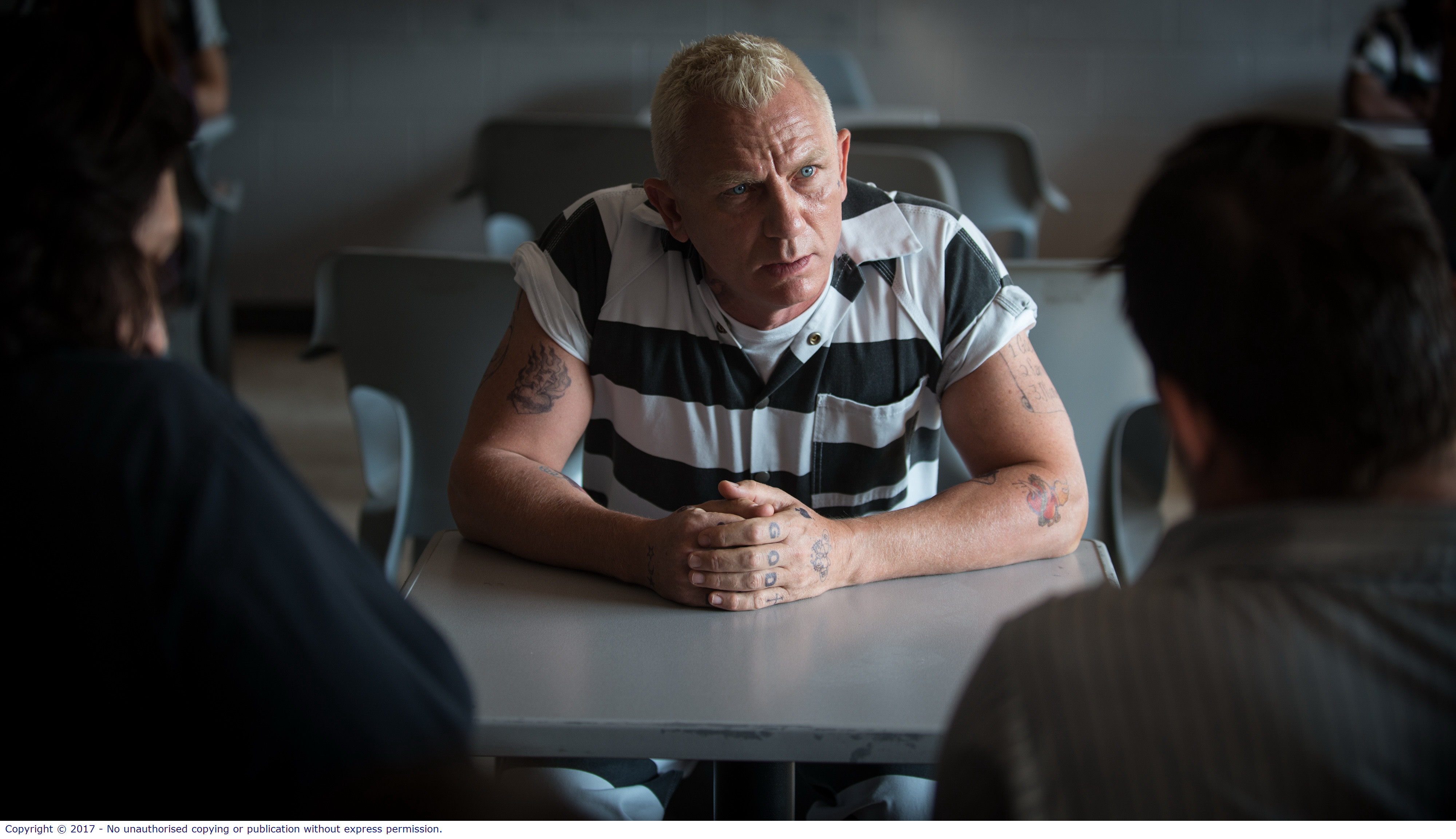
The heist is a complicated operation, one in which the siblings need help pulling off, and this is where our story kicks off. They proceed to go about setting up a ragtag team of misfits. Joe Bang (Daniel Craig) is the film’s apparent shining hero and more than a step away from a suave, smooth talking James Bond. Joe Bang, as his name would suggest, is an incarcerated explosives specialist, whose temporary escape from prison plays a key role in the Logan siblings’ intricate plan. The Logan’s also approach Joe’s brothers whom they need for some heavy lifting making them a team of six in total.
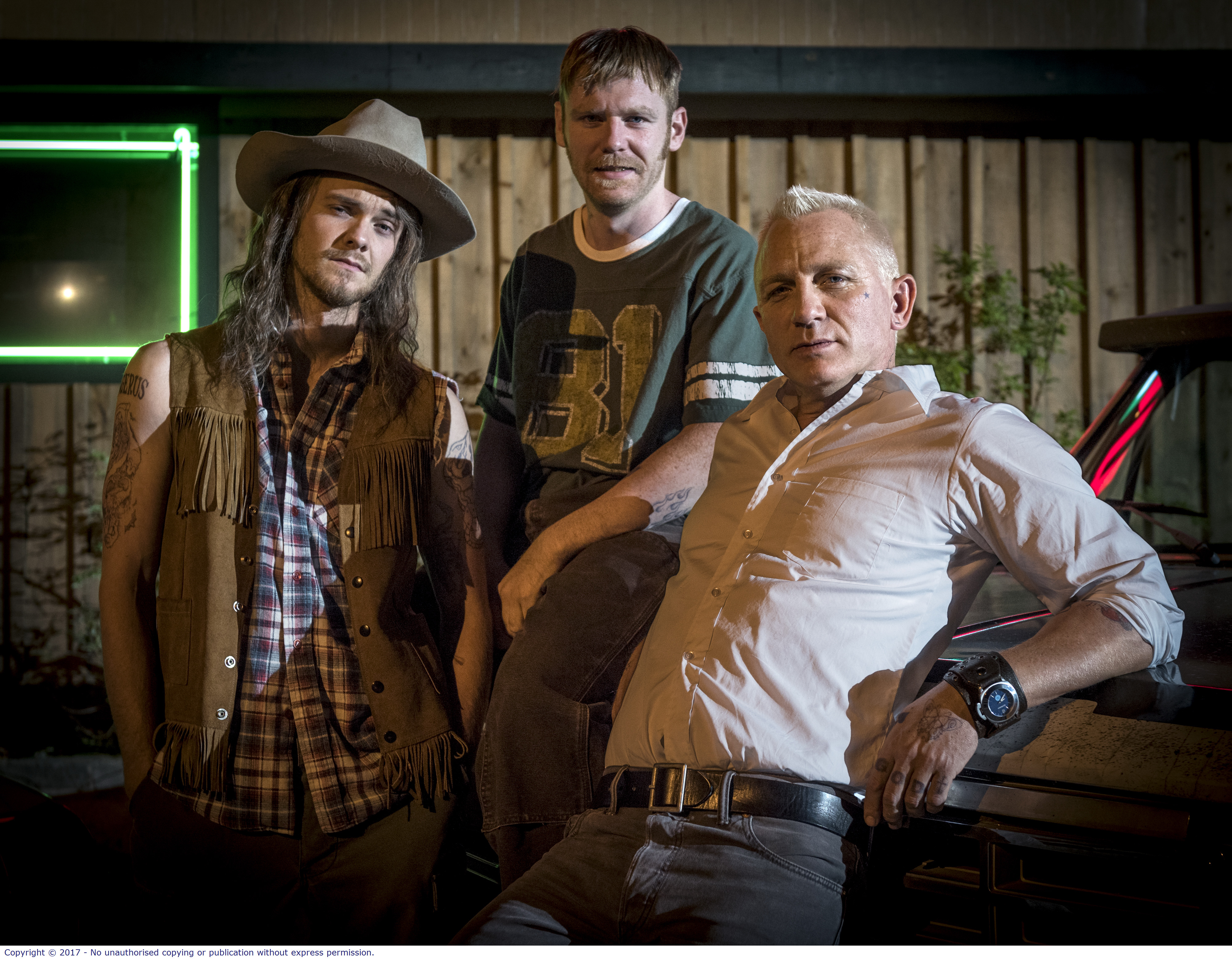
The film meanders and bounces along, clumsily finding a pitch coupled with an off-beat tempo. For the most part, Logan Lucky has a relatively fluid and laid back demeanour that only occasionally suffers from a much need injection of pace. The introduction of Hilary Swank, who plays a hardy investigator harbouring deep suspicions of the Logan siblings and whose main purpose seems to be setting up a potential sequel, also sticks out like a sore thumb. Humming along, however, the heist keeps us guessing without losing us, all while having a good time – which gives us the impression that maybe this is all that Soderbergh is really aiming for.
Regardless of the film’s success, however, Logan Lucky has been witness to a beacon of light within the business end of the film industry. Soderbergh’s now recently tested game-changing production and distribution model allows directors greater creative control over their own projects, all while having little to no studio interference. The model is simple and something to be noted:
- Raise your budget by pre-selling foreign distribution rights (for the young guns, you might need a proven track record of previous work to be deemed feasible to do this.
- Sell everything except the films theatrical release in order to pay for advertising and extra prints of the movie – which includes selling post-theatrical rights to services such as Netflix, HBO, television, and aeroplane services
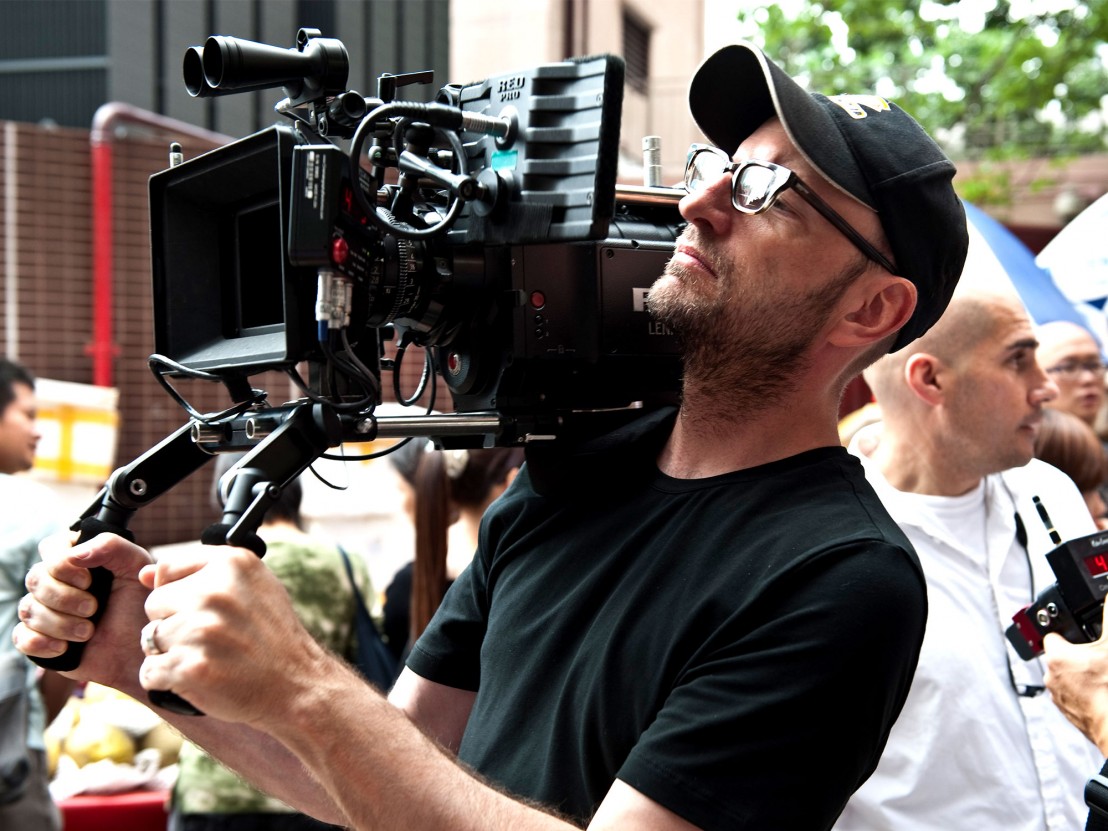
By following these simple procedures, Soderbergh was able to nullify the intervention of a Hollywood studio – claiming that there is no need for an intermediary and money is not passing through anyone’s hands. Hence, Soderbergh was able to design the trailer earlier this year on his own, as well as the poster and the entire marketing plan. Soderbergh also ended up securing a theatrical release by teaming up with independent start-up Bleecker Street. Although Bleecker Street originally sought to keep control of the film, they are now receiving less than a $1 million fee for allowing Soderbergh to market the film under their banner. They’ll also receive a percentage of ticket sales (if the movie meets certain standards at the box office), while also benefiting from DVD and streaming sales. The collaboration with NASCAR for the film’s production couldn’t have hurt either; along with advertising, product placement, and cameo appearances from NASCAR stars – they add some all round spice to the film.
Logan Lucky could also, under speculation, quite possibly become a film series under Soderbergh’s ground-breaking distribution model. With a lot of room left for character development, along with a lack of closure, Logan Lucky feels like an introduction to the world of the Logan’s with much more to come. While the film has a trial-and-error notion in gaining a monopoly on films complete creative control, Logan Lucky wittingly seeks something as close to perfection as possible in uncharted territory.
Logan Lucky hits Australian cinemas on the 17th August, check out the trailer below!






